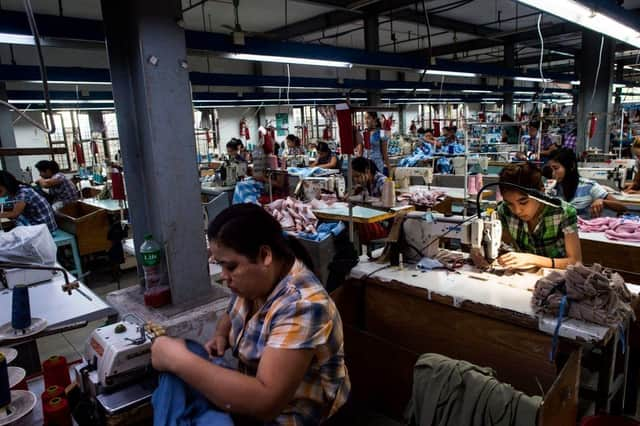Myanmar


Major fashion brands have been accused of failing to protect workers from labour abuse in Myanmar.
H&M, and Zara owner Inditex are among those facing allegations relating to issues including unpaid wages, unfair dismissal and harrassment and abuse, according to a report from the Business & Human Rights Resource Centre (BHRRC).
Advertisement
Hide AdAdvertisement
Hide AdSince the illegal military takeover in Myanmar two years ago, the BHRRC has identified 212 cases of labour and human rights violations perpetrated against more than 108,000 garment workers in Myanmar.
H&M said it was investigating the 20 alleged instances of labour abuse at garment factories, while Inditex said recently that it was phasing out purchases from the Southeast Asian country, along with Primark, which also faced allegations of human rights abuses.
Between February 2021 and February 2023, BHRRC recorded a range of abuses taking place against garment workers in the country, including reduced wages and wage theft, which continued to be the most significant rights violation since the military takeover, found in more than half of the documented allegations and affecting at least 82,000 workers.
Unfair dismissal and inhumane work rates and forced overtime were also commonly occurring violations.
Nearly a third of the cases related to harassment, intimidation and abuse, with an overwhelming share concerning gender-based violence and harassment against women. There has been a significant increase in attacks on freedom of association, linked to 26 per cent of allegations.
The organisation said business-military collusion is also emerging as a serious concern.
Natalie Swan, Labour Rights Project Manager, Business & Human Rights Resource Centre, said: “More than two years on from Myanmar’s military coup, this report paints an alarming picture of the proliferation of human rights abuses against garment workers – many of whom are producing clothes for some of the world’s largest fashion brands. Things have been getting worse for garment workers, with reports of gender-based violence, inhumane working conditions and other forms of abuse having become commonplace.
"Fashion brands sourcing from Myanmar must urgently recognise the influential role they have over this situation – and quickly work to ensure greater oversight of what is going on in their supply chains in Myanmar.
Advertisement
Hide AdAdvertisement
Hide AdShe added: “Our data reveals an alarming image of abuse and indignities for garment workers in Myanmar – and it is only right the fashion brands relying on them for their profits come under pressure to further interrogate human rights risks in their supply chains. Where any business sources from a country where armed conflict or widespread violence is taking place, it is that business’ responsibility to demonstrate how they are meeting this specific challenge.”
"All the cases raised in the report by BHRRC are being followed up and where needed remediated through our local team on the ground and in close cooperation with relevant stakeholders," H&M said.
"We are deeply concerned by the latest developments in Myanmar, and we see increased challenges to conduct our operations according to our standards and requirements.”
Comments
Want to join the conversation? Please or to comment on this article.
